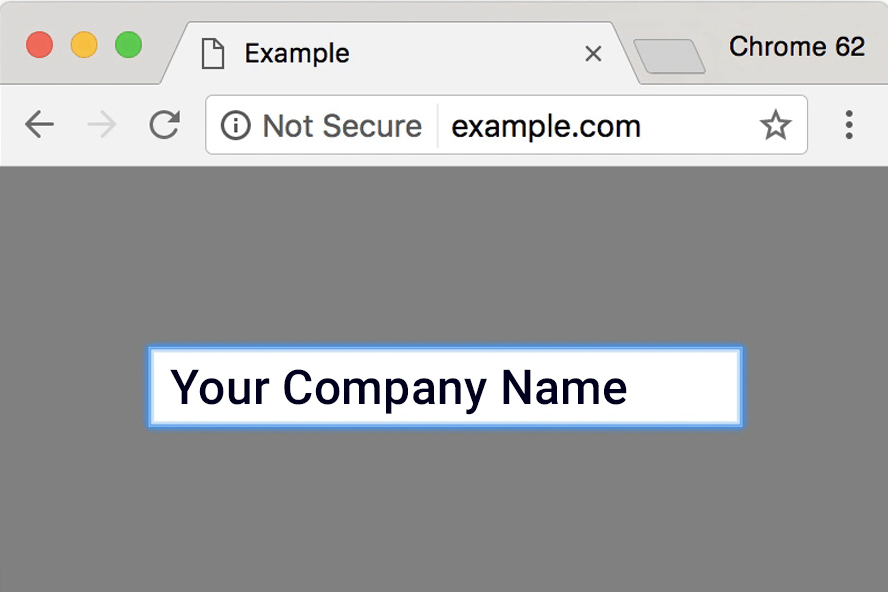Google continues its assault on non-secure websites with its latest round of updates this month. This Chrome update (version 62) will have the biggest impact on small / medium size businesses. How will you know if you’re being affected? If your business doesn’t have what is called an SSL Certificate your customers are going to see “NOT SECURE” in the address bar. The easiest way to determine if your site is secure, is to add an “s” to your URL.
Example (without SSL): http://
Example (with SSL): https://
Once you add an “s” to the “http://” and hit enter, your website should load with a “secure lock” in the address bar. If your website fails to load, then that means that you don’t have a secure website – and Google is about to penalize your business.
Why is Google doing this now? Google actually began this shift to a more secure web in 2014. They began with subtle changes like rewarding businesses with better rankings if they had an SSL Certificate. They transitioned into adding an “alert” (via a circle icon) that could be clicked to tell customers the site they were on was not secure. This latest update now adds the “NOT SECURE” text to the address bar. Google plans on changing that text to red, with a bolder alert icon, then eventually showing a full screen takeover that informs visitors your site is not safe.
If you own, operate or manage a small business you will want to take action immediately. Google Chrome is the world’s most used web browser (59.3%) and with that large of a market share they affect consumer behavior. The data released thus far shows a 23% decrease in web traffic to unsecure websites – that number is going to grow as Google continues its crackdown on websites that are not secure for users.
Google already penalizes non secure websites in their search engine rankings and now with the addition of a “NOT SECURE” warning label, non secure websites will further be penalized with decreased traffic.
What is an SSL Certificate? They are actually small data files that help encrypt connections from your web server to the browser. They allow the browser to establish a secure session with your server so that all web traffic between the user and server is safe. With the increase in cyber attacks and increase in websites that collect user data (credit cards, contact forms, etc) it’s no surprise that Google is tackling this issue head on. Their search engine business relies on providing users safe, secure and relevant results – not having users information hacked.
The good news for businesses is that getting an SSL Certificate is relatively pain-free. You should contact your webmaster or hosting provider and ask if they are able to install the proper files to make your website secure. We highly recommend making sure that a professional service or server technician install your certificate. They will make sure that all your file extensions and connections get updated so that your certificate works correctly.
If you have questions, need help, or found this article helpful in some way please let us know.
